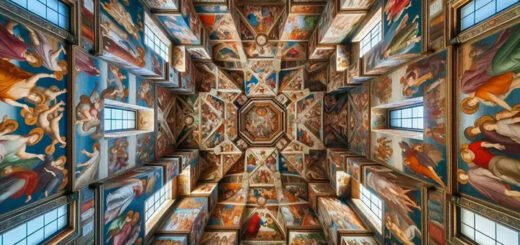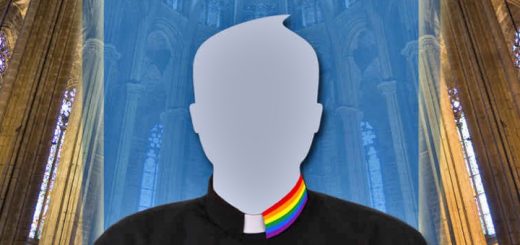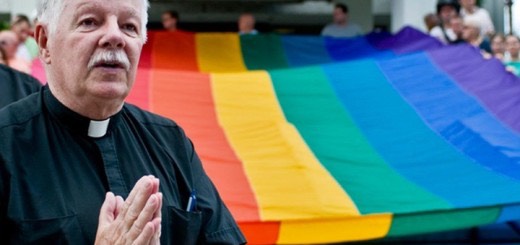How many gay priests are there in the Catholic Church?
Article by Josselin Tricou* Published in the magazineSociologies(France), 2018/2 (vol. 9), pp. 131-150, freely translated by Giacomo Tessaro,eighth
As James G. Wolf did for the United States, Julien Potel tried to make an estimate of the percentage of homosexual priests in France, as regards what I will call, for convenience, a vocation "Hideout". It is significant that Potel, who in addition to being a sociologist is a priest, has never published the results of his research.
Given the impossibility of an open and systematic research, Wolf and Potel have resorted to an indirect method: to ask the gay priests interviewed by them for an estimate on the percentage of their gay confreres. Both authors estimate them to a percentage between 30% and 70%. For example, a sample of a hundred priests interviewed by Wolf estimates this percentage in the United States around 48%, and around 55% as regards seminarians.
Although Wolf himself recognizes that, as they present, such data are not reliable, a comparison between generations (regarding the age of the priests interviewed) shows a significant increase in percentage among the youngest priests. Perhaps the effect of a greater awareness of the younger generations of gay priests? Or is it due to greater visibility, or maybe really today there are more gay priests? In any case, some, such as Father Donald Cozzens (American episcopal vicar graduated in psychology), do not hesitate to diagnose a real "Crisis of orientation [sexual]" in today's Catholic clergy.
In France, the collapse of the traditional recruitment of the priests in the countryside, which was accomplished in minor seminars (the institutes which, before the introduction of secondary schools in 1963, were fundamental in the schooling of children generally from poor rural families, with the aim of stimulating the priestly vocation), followed by the abandonment of a large number of heterosexual priests then married, during the "Catholic crisis" of the 70s, it is undoubtedly at the origin of a lack of vocations "quality", and a large number of vocations "Hideout".
If we also consider the drop in the recruitment between the old conservative bourgeoisie (whose children have scarce alternatives if they admit with themselves they are gay), it becomes clear that this concentration has increased the number of vocations "Hideout".
An interviewee comments: "Speaking in general, there was a change since the 70s, when the clergy was largely heterosexual and left, in the 2000s, when many homosexual and right priests emerged. In fact, the more the church has developed its homophobic rhetoric, the more attracted homosexuals who denied being it, at least at the beginning of their career " (Father Arthur, worker priest, 67 years old).
But now, with the emergence of gay masculinity in contemporary secular societies (socio -cultural affirmation and recognition of homosexual marriage), which will be of the recruitment of the priests? The most insightful members of the clergy can only glimpse a double threat.
In the short term, the seminars risk transforming into places where homosexuality is all too visible, and to follow the example of the so -called American monasteries "Gay-friendly", strongly homoerotic environments accused of excluding heterosexual candidates.
In the long term, however, the threat is the emptying of seminars already largely deserted, and the cessation of the role of the Church as a safe hiding place, a hiding place so well described by Monsignor Charamsa At the beginning of the first part of this series.
Hence the current necessity (according to the title of a laboratory of the annual conference on the vocations of the French Episcopal Conference, held in Paris on January 23, 2014) of "Re-relying and re-evaluating the celibacy consecrated in contemporary society", but also, and perhaps above all, the need to reactivate (in an era that sees his grip weakened) the pressure exerted on the priests so that they do not exhibit their (homo) sexuality, or at least so that they are discreet.
This policy of "Don't say", not to exhibit, must be understood not so much as the effect of the institutional repression of sexually deviated priests (which in fact is rarely carried out, despite the fact that there are legal means to do it), as much as the ability to silence [homosexual priests, or in any case sexually active] through self -censorship, to preserve the line held by the Church and the consent between the laity, of which they are responsible.
The Church recognizes (see the concept of forgiveness, in general and in the sacrament of confession) that its rules are constantly made up of ideals that can never be fully experienced, also (and perhaps in particular) by its priests. In the Church, the most serious deviance is not the transgression of these rules ("Catholicism is typically flexible" With regard to the acts performed, as Céline Béraud claims), but the public discussion of their legitimacy.
In any case, the need not to cause a scandal between laity is well internalized by priests, gay and straight, and is one of the factors that push them to remain in the institution, perhaps at the cost of living a double life. Given the excessive cost of a visible and irreversible defection, the solution of the double life is often chosen, despite the suffering it causes.
“I couldn't abandon the Church. There was my partner, and some colleagues knew it, even if I had never tried to show it, nor to ask for an official position for him, because it was out of the question that I could damage the Church with this story. But today I think in a slightly different way. " (Father Michel, parish priest, 63 years old)
“Listen to me, you had to be discreet, even if it wasn't easy. You could not flaunt one's sexuality in public, because it was not only your sexuality, and also because when a priest speaks, he does it not only on behalf of himself, but of the Church, an institution that has already been weakened enough. And then there is the people of God, the parishioners, what would they say? They would not understand, and even if they understood, I know that shocking them would not be able to use anything good, indeed, the opposite. " (Father Arthur, worker priest, 67 years old)
Original text:Recreating "Moles": Managing Homosexual Priests' Silence in an era of gay marriage






